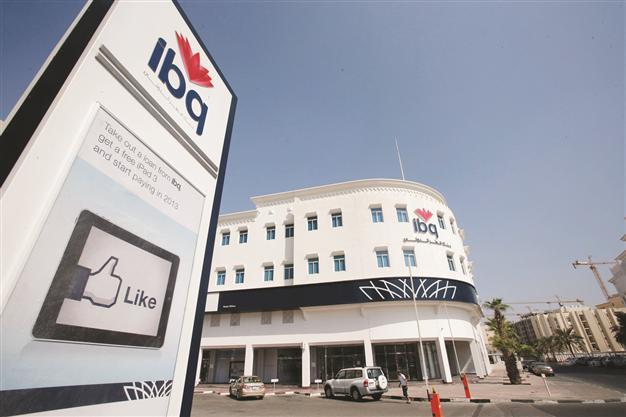Gulf firms target new markets for growth
DUBAI - Reuters

A general view of Qatar International Bank in Doha October 28. Qatar’s 20 banks, which cater to a population of 1 million, wants to expand in emerging countries. REUTERS photo
Gulf firms and state-backed investors, flush with petrodollars and facing limited growth options at home, are stepping into emerging markets in Africa and Asia to get a foothold in key sectors such as banking and telecommunications.
Investors from the Gulf have for years put their oil wealth into developed markets in the U.S., Europe and Japan. The consistent focus on less developed countries is new, and may have big implications for the economies receiving the money.
Emirates NBD, Dubai’s largest bank, is one example of the trend; it is looking at potential acquisitions in areas including Africa, Chief Executive Rick Pudner told the Middle East Investment Summit this week.
Data from the Arab Investment and Export Credit Guarantee Corp show the start of the trend. Foreign direct investment outflows from Arab countries, the vast majority from the Gulf, rose 24 percent to $24.6 billion last year; FDI outflows from all nations in the world climbed 17 percent, to $1.69 trillion.
The rise in Arab FDI was striking because it occurred during the Middle East’s Arab Spring uprisings, which might have been expected to stifle outflows by making most firms risk-averse.
Two major motives are behind the Gulf’s investment push into emerging markets.
One is the fact that Gulf companies are outgrowing their home markets and are being forced to go abroad to continue expanding. Qatar, for example, has nearly 20 banks catering to a population of only around 1 million.
The other motive is more positive: Gulf companies think their skills and backgrounds give them a competitive advantage in pursuing some emerging market opportunities. One area which they plan to dominate is Islamic banking, which is expected to take off in North Africa after last year’s overthrow of authoritarian regimes there.
Countries such as Sudan, plagued by wars, poverty and a decade-long conflict with South Sudan, are forbidding to Western investors but look more accessible from the Gulf because of cultural and political ties.
With oil prices high, the Gulf has more money to invest abroad than it can spend on corporate acquisitions and investments, so some of its cash is starting to move into emerging market bonds.
Traditionally, the Gulf’s bond investors have focused on their own region. But in September, Gulf investors bought nearly 60 percent of Turkey’s first issue of a sovereign Islamic bond, which totalled $1.5 billion in size. This was seen as a sign that Gulf funds were willing to leave their comfort zone.
